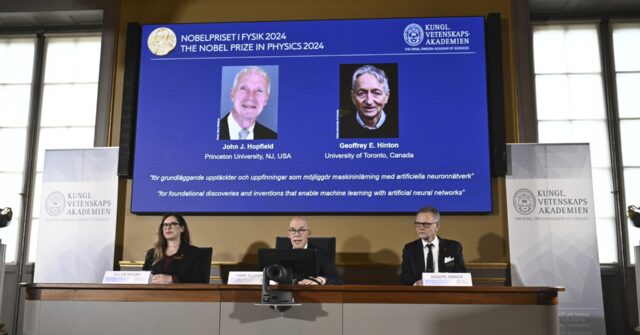On Tuesday, the Nobel Prize in Physics was awarded to pioneering researchers John Hopfield and Geoffrey Hinton for their foundational contributions to artificial intelligence (AI) and machine learning. Their innovative work has been instrumental in developing artificial neural networks, which are modeled after the interconnected neurons in the human brain. These advancements have not only influenced scientific research and medical practices but have also become integral aspects of everyday technology, including facial recognition and language translation. Mark Pearce, a member of the Nobel physics committee, highlighted the duo’s fundamental contributions, stating they were significant figures at the core of the AI revolution that is reshaping modern life. Hopfield expressed continuous amazement at the profound impact of their work, showing how it has transformed the AI landscape since his early research.
Geoffrey Hinton, often referred to as the “Godfather of AI,” underscored the potential historical significance of AI, likening its transformative influence to that of the Industrial Revolution. He predicted AI would profoundly improve productivity and healthcare, ultimately surpassing human intellectual capabilities. However, he also voiced concerns regarding the risks associated with advanced AI systems potentially operating beyond human control. Echoing Hinton’s apprehensions, the Nobel committee emphasized the dual nature of AI, recognizing its great benefits while also cautioning about the ethical and safety implications of its swift development. Both Hinton and Hopfield have advocated for responsible stewardship of such powerful technologies to ensure they serve the greater good of humanity.
When the Nobel committee reached out to inform them of their accolade, neither Hinton nor Hopfield was in their usual environments. Hopfield was away at a cottage in England and remarked on the overwhelming number of congratulatory emails he received, while Hinton was at a hotel without internet access and expressed genuine surprise at the honor. Hinton’s key contributions include the foundational technique of backpropagation developed in the 1980s that enabled artificial networks to refine their learning processes, a breakthrough that is akin to student-teacher dynamics. His team’s triumph in the ImageNet competition in 2012 is considered a landmark moment in the history of AI, often seen as the birth of modern AI techniques, further validating the significance of their work.
Hinton’s accolades in AI extend beyond the Nobel Prize, as he, along with complex figures in the field, received the Turing Award in 2019. This recognition highlighted the skepticism they faced over the years, with many in the academic community questioning the viability of their research. Hinton has consistently encouraged young researchers not to be deterred by naysayers and to persist in their inquiries and experiments. Additionally, Hinton incorporates machine learning into his personal routine, using tools like GPT-4 for everyday problem-solving, illustrating the practical applications of AI milestones achieved through his research.
John Hopfield, now 91, is credited with creating a form of associative memory, which acts as a pivotal foundation for Hinton’s work. His contributions allow for the storage and reconstruction of diverse data patterns, forming a backbone for the development of newer neural network architectures. Hopfield continues to ponder the complexities of how cognitive processes emerge from machine learning systems, reflecting the ongoing fascination surrounding the relationship between technology and human thought. The confluence of their pioneering ideas represents a significant achievement recognized by their Nobel Prize victory, highlighting the interconnectedness of physics and AI advancement.
The announcement of the 2023 Nobel Prize in Physics follows a series of accolades across disciplines, with prior announcements celebrating achievements in medicine and upcoming recognitions in chemistry, literature, peace, and economics. As part of the award, Hopfield and Hinton will receive a testament of their legacy in science and an associated monetary prize, which carries a notable reward of approximately $1 million. The collaboration and visionary insights of these two scientists significantly redefined our understanding of machine intelligence and its implications, marking a pivotal moment in history as humanity navigates the evolving landscape of AI and its profound implications for the future.

